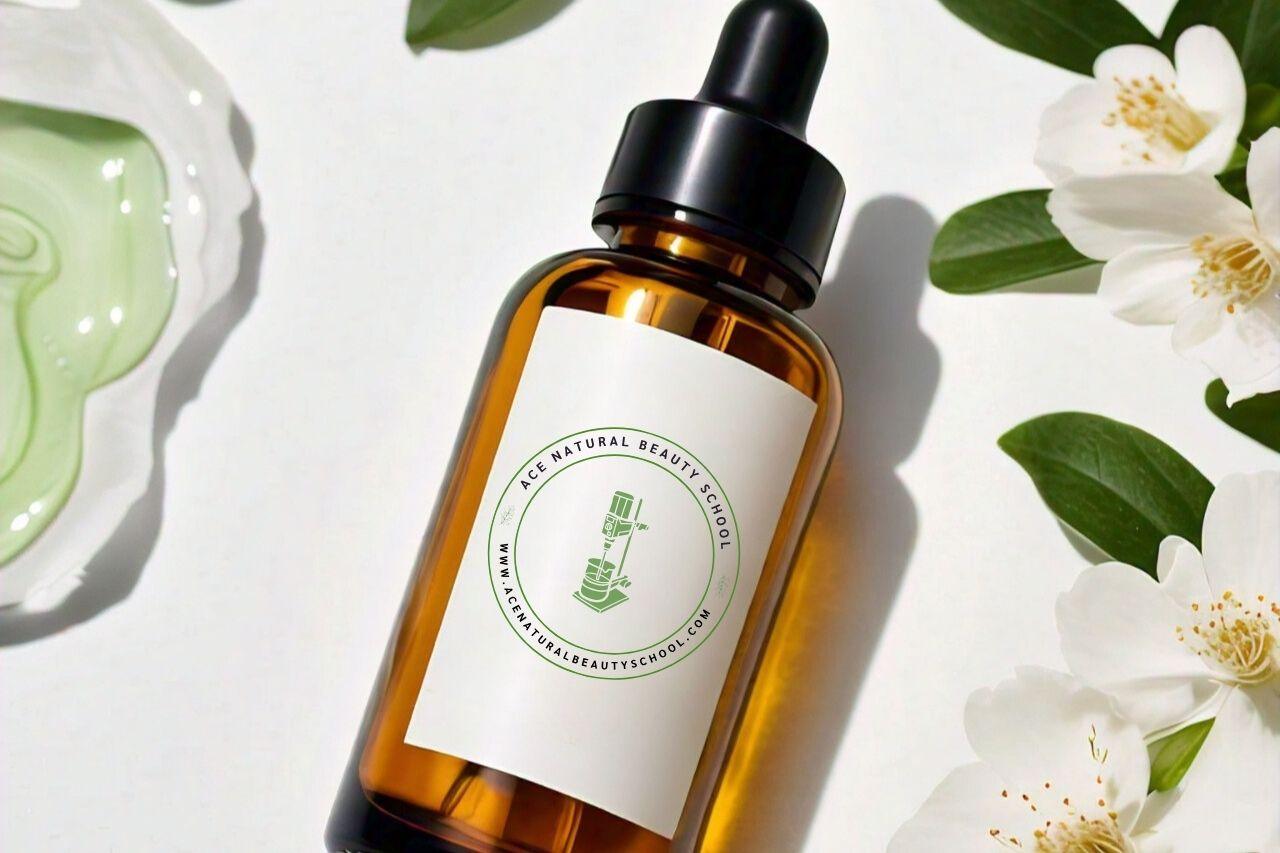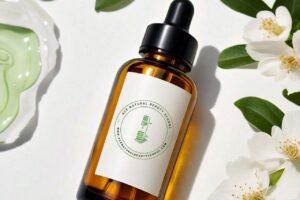How to start a cosmetics business at home successfully
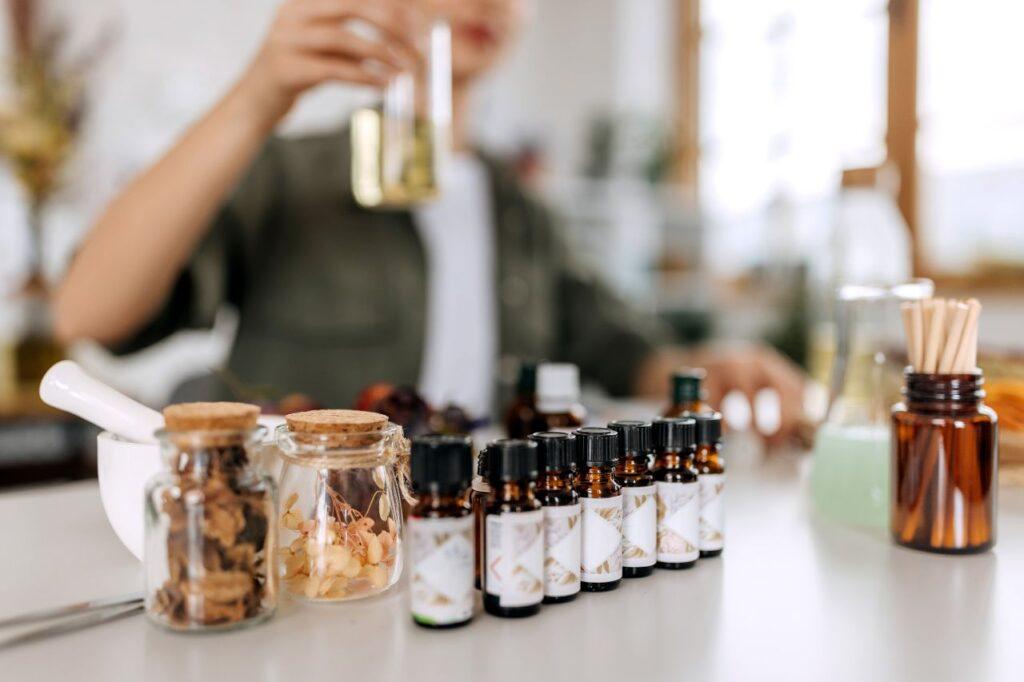
Ever thought about starting your own cosmetics business from the comfort of your home? You’re not alone! With the rising demand for homemade and natural beauty products, now is a fantastic time to dive into the cosmetics industry.
The cosmetics industry is booming, offering immense potential for aspiring entrepreneurs. Whether you’re a stay-at-home parent, someone looking to supplement your income, or simply passionate about beauty products, starting a cosmetics business at home can be incredibly rewarding.
However, it’s important to remember that starting a cosmetics business involves more than just making products to sell. This is a competitive industry with new trends and innovations emerging daily, so it’s crucial to have the necessary skills and a solid business plan to scale, no matter the size of your venture.
One common mistake I see new startup formulators make is being overly optimistic and setting unrealistic goals. Don’t get me wrong, optimism is great, but it’s important to balance it with realism and set achievable goals.
Understanding your values, brand positioning, niche, and target audience are just a few of the important aspects to consider.
Even if you don’t know where to start, that’s okay! We’ve all been there—knowing what we want but feeling confused about where or how to begin. This guide will provide you with detailed insights and actionable steps to help you start a cosmetics business at home successfully.
Benefits of Starting a Cosmetics Business at Home
Starting a cosmetics business at home offers several advantages. It allows for flexible working hours, reduced overhead costs, and the ability to test products on a small scale before expanding. Moreover, you have the opportunity to create personalized products that cater to niche markets, setting your brand apart from larger competitors.
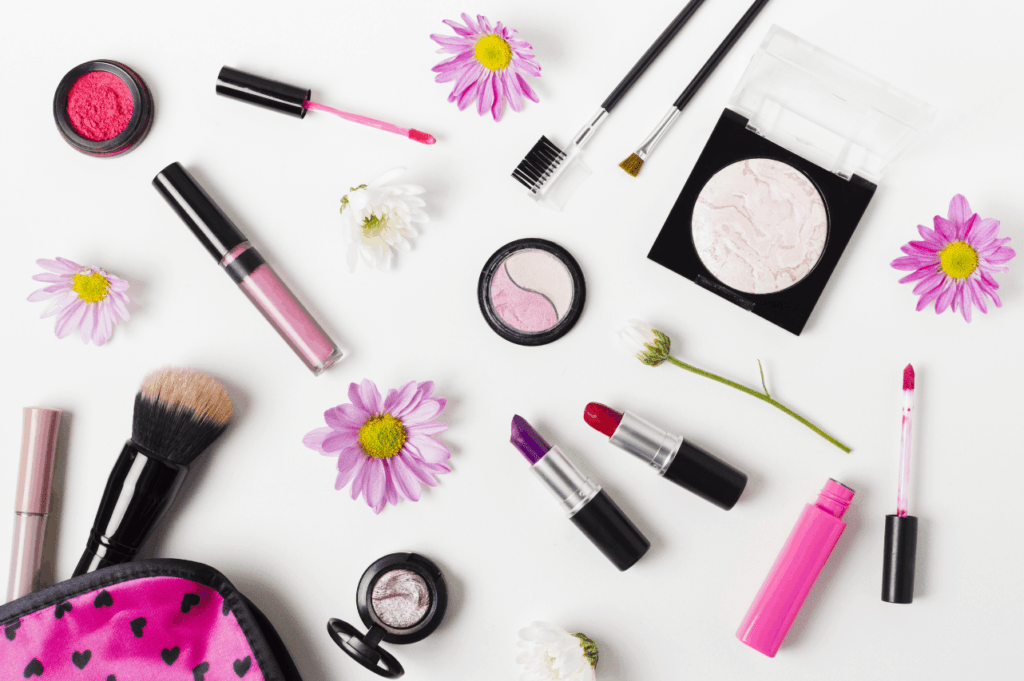
Now, let’s take a look at some of the actions or steps you need to take before starting your new business:
steps you need to take before starting your new business
1.Understand the Market
The beauty and cosmetics industry has seen remarkable growth over the past decade, driven by increasing consumer demand for innovative and natural products. If you’re thinking about starting a cosmetics business, it’s essential to familiarize yourself with the market.
You’ll need to keep up with changing trends, popular products, spotlight ingredients, and evolving consumer preferences. Additionally, understanding new policies and regulations that could impact your business is crucial.
Don’t forget to check out the competition, whether they’re home-based businesses like yours or big brands. Staying updated with industry news and continuously researching will help you stay ahead of new trends. To get started, you must:
Identify Your Target Audience
First things first, who are you selling to? Understanding your target audience is crucial. Are you focusing on eco-conscious consumers, makeup enthusiasts, or people with sensitive skin? Narrowing down your audience helps you tailor your products and marketing strategies effectively.
Understand and Analyse Market Trends
Stay updated with the latest trends in the cosmetics industry. Trends like organic ingredients, vegan formulations, and sustainable packaging are currently in high demand. Keeping an eye on what’s popular can give you a competitive edge.
Study your Competitors
Knowing who you’re up against can help you carve out your niche. Study your competitors – what are they doing well? Where are the gaps? Use this information to offer something unique and valuable.
2. product development
Starting a cosmetics business requires a deeper purpose than just generating profits. It’s about helping individuals to achieve their beauty goals. To accomplish this, it’s essential to identify a specific area of focus, such as skincare, and develop a comprehensive understanding of your target audience’s needs and concerns.
By understanding the specific skin issues your audience faces, you can develop targeted products that effectively address their problems. This understanding will serve as a guide for product development, ingredient selection, and formulation techniques. Knowing your audience’s needs will help you select the most suitable products to launch, ensuring they meet the demands of your target market. Start by:
Defining Your Niche
What type of cosmetics do you want to create? Skincare, makeup, haircare?Whether it’s organic skincare, vegan makeup, or anti-aging products, focusing on a particular segment helps you target a dedicated audience.
Conduct thorough market research to understand what potential customers are looking for and how you can meet their needs uniquely.
Researching and Formulating Your Products
Creating high-quality products starts with research. Learn about various ingredients, their benefits, and potential allergens. Enroll in online courses or workshops on cosmetics formulation to gain essential knowledge and skills. Experiment with different formulations to develop unique and effective products that stand out in the market.
Sourcing Quality Ingredients
The quality of your products largely depends on the ingredients you use. Source high-quality, ethically-sourced ingredients from reputable suppliers. Building relationships with suppliers can help you negotiate better prices and ensure a consistent supply of materials.
3. Create a Business Plan
Once you have an understanding of what niche you want to position yourself, define who your customers are going to be, decide on the ideal products to sell to these people, now is the time to make a proper plan.
A well-structured business plan is the foundation of your cosmetics business. Outline your business goals, target audience, marketing strategies, and financial projections. A clear business plan not only guides your operations but also helps attract potential investors or secure loans if needed.
4. setup your workspace
When starting a cosmetics business at home, you must create a dedicated space for making cosmetics. This should be a clean, organized, and safe area where you can focus on production without distractions. Ensure it meets health and safety standards, with proper ventilation and storage for your ingredients and products.
The next important step is to invest in the right equipment, such as mixing bowls, scales, and storage containers. Good tools will make your production process smoother and more efficient.
5. Understanding Legal Requirements
Compliance with legal and regulatory standards is crucial in the cosmetics industry. Research the regulations governing cosmetics production and sales in your region. Register your business, obtain necessary licenses, and ensure your products meet safety and labeling standards to avoid legal complications
6. Branding Your Business
Effective branding sets your cosmetics business apart from competitors. Develop a unique brand identity, including a memorable logo, brand colors, and packaging design. Your branding should reflect the values and quality of your products, appealing to your target audience.
Create a Memorable Brand Name
Your brand name should be catchy, easy to remember, and reflect the essence of your business. Brainstorm different ideas and get feedback before making a final decision.
Logo and Package Design
A professional logo and appealing packaging can make a big difference. Consider hiring a designer to help you create a cohesive and attractive brand image. You can also create a logo by yourself using free tools like canva
Brand Identity
Consistency is key in branding. Use the same colors, fonts, and style across all your marketing materials. Your brand identity should tell a story that resonates with your audience.
7. Online presence
In today’s digital age, a strong online presence is vital for any business. Create a professional website showcasing your products, their benefits, and your brand story. Utilize social media platforms to engage with potential customers, share content, and build a loyal following.
Online sales are crucial for reaching a wide audience. In addition to your website, consider selling on platforms like Etsy, Amazon, or eBay. Reach out to local boutiques and salons to see if they would be interested in carrying your products. This can help you reach customers who prefer to shop in person.
Trade fairs and markets are great opportunities to showcase your products, meet customers, and get immediate feedback. They also help you build local brand recognition.
8. Marketing Strategies for Your Cosmetics Business
Effective marketing is key to attracting customers and growing your business. Your marketing plan should outline how you will promote your products. This includes your target market, key messages, and the channels you will use to reach your audience.
Social media is a powerful tool for promoting your business. Platforms like Instagram, Facebook, and TikTok are great for showcasing your products and engaging with customers.
A professional website is essential for any business. Your site should be easy to navigate, visually appealing, and include an online store where customers can purchase your products.
9. Packaging and Labeling Your Products
Attractive and informative packaging plays a significant role in attracting customers. Ensure your packaging is appealing, environmentally friendly, and compliant with labeling regulations. Clearly display product ingredients, usage instructions, and any necessary warnings.
10. Pricing Your Products
Calculate your costs, including ingredients, packaging, and labor. This will help you determine a fair price that covers your expenses and provides a profit margin.
Research your competitors’ prices to ensure your products are competitively priced. You don’t want to be too expensive or too cheap – find a balance that reflects your product’s value.
Attract customers with special offers, discounts, and promotions. This can boost sales and help you clear out inventory.
11. Building Customer Relationships
Customer satisfaction is paramount in the cosmetics industry. Provide excellent customer service, offer personalized recommendations, and address customer concerns promptly. Building strong relationships with your customers encourages repeat business and positive word-of-mouth referrals.
12. Managing Finances
Effective financial management is crucial for the sustainability of your business. Keep track of your expenses, revenues, and profits. Invest in accounting software or hire a professional to manage your finances, ensuring you have a clear understanding of your business’s financial health
13. Stay Updated with Industry Trends
The cosmetics industry is constantly evolving, with new trends and innovations emerging regularly. Stay updated by attending industry events, subscribing to beauty magazines, and following influential figures in the beauty community. Staying ahead of trends helps you innovate and keep your products relevant.
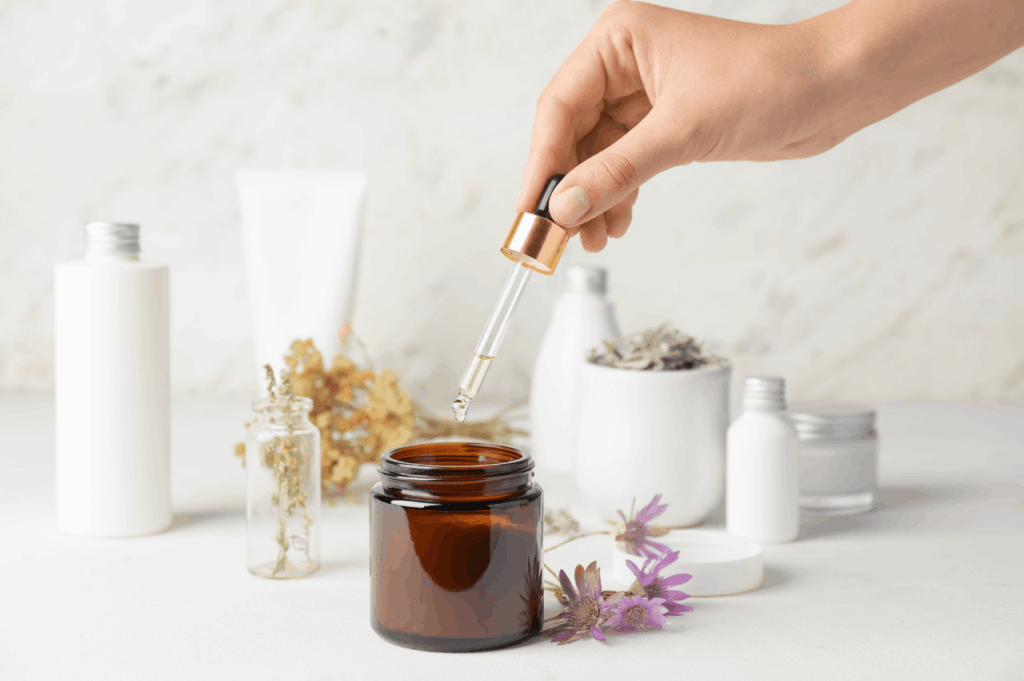
Additional tips you should know:
Learning from successful entrepreneurs can provide valuable insights and inspiration. Research on home-based cosmetics businesses that have grown into well-known brands. Understanding their journey, challenges, and strategies can offer practical tips for your own business. Check out our courses to get started
You can also Join industry associations to network with other cosmetics entrepreneurs. This can provide you with support and opportunities for collaboration. Engaging in online forums, attending workshops, and participating in local events can help you to build a network for your business growth.
Consumers are increasingly conscious of the environmental impact of their purchases. Incorporate sustainable practices in your business, such as using eco-friendly packaging, sourcing organic ingredients, and minimizing waste. Highlighting your commitment to sustainability can attract environmentally-conscious customers.
Starting a cosmetics business at home is an exciting and rewarding endeavor that offers endless possibilities for creativity and financial growth. By understanding the industry, defining your niche, and following a structured approach, you can transform your passion for beauty into a successful home-based cosmetics business.



